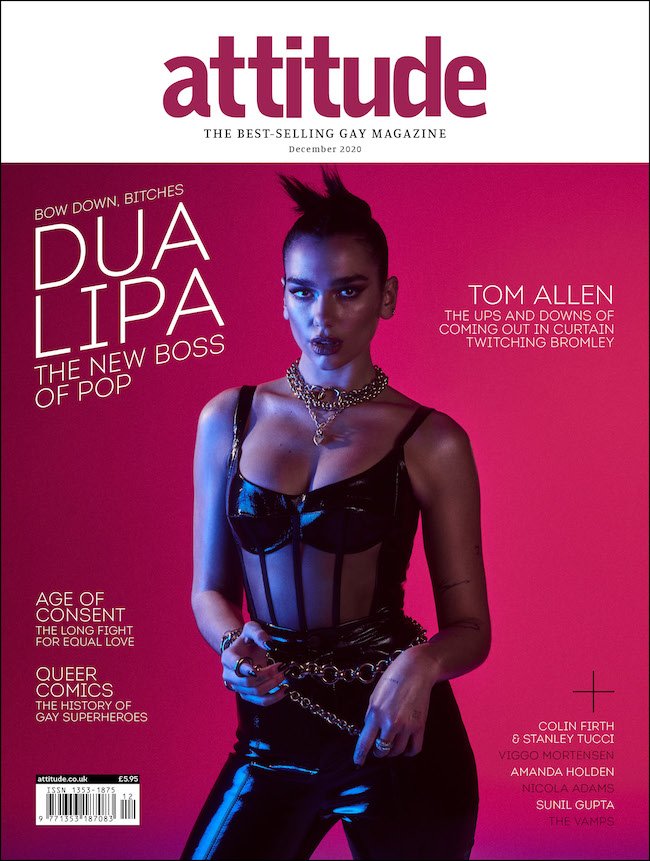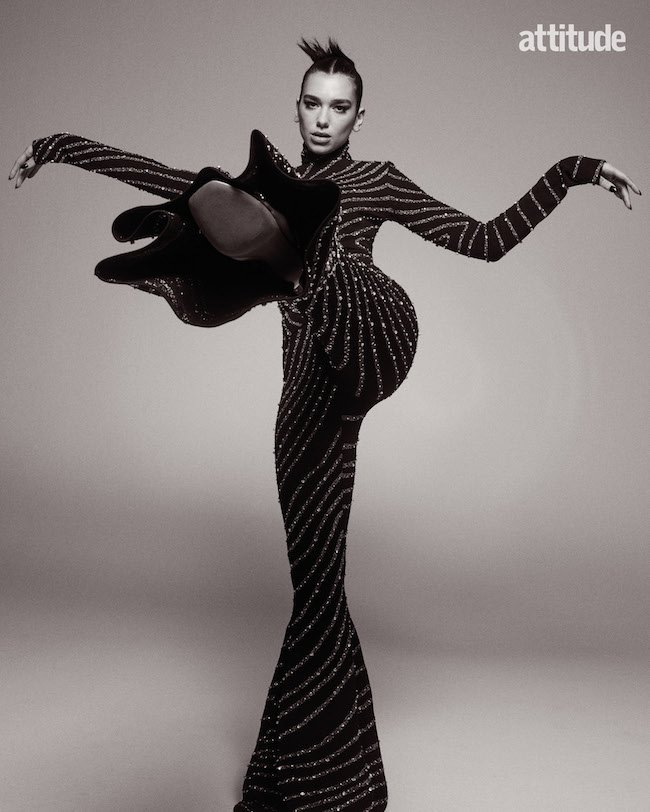Dua Lipa’s guide to shutting down sexists in the music industry

Dua Lipa graced the cover of Attitude, the best-selling gay magazine. Despite being one of the biggest pop stars on the planet, she still has to navigate sexism in the music industry. It deserves to be pointed out that Dua has two Grammys and a pair of Brit Awards to her name. She says there’s an “underlying pressure” women in music to “constantly prove” themselves.

Dua Lipa’s guide to shutting down sexists in the music industry
Being a woman in the music industry.
In an article from Marie Claire UK, they revealed that countless women who work in the music industry testified to frequent cases of sexual misconduct and misogyny. Unfortunately, Dua isn’t the first woman to experience that… that’s just what happens to women in the industry. Some female artists in the music industry also experience being patronized over their songwriting and sometimes, pressured to change.
The 25-year-old Grammy winner says for a long time she felt she had to make a case for her seat at the table. She also noted the concealed and unexpressed apprehension to show everybody what she can do.
“That’s just being a woman in the industry. A lot of people see it, particularly in pop music, that you’re manufactured or whatever, so you have this underlying pressure or anxiety to constantly prove [yourself] to people, especially when you write your own lyrics.”
“You have to work a little bit harder to be taken seriously.”

According to PRS for Music, out of 95,000 songwriters, 13% remain female (as of September 2019). This, of course, doesn’t surprise the number of female-written songs that have yet to be taken seriously. Sure, we have Taylor Swift and Adele. However, men continue to write the majority of chart-topping songs that female artists usually perform.
Dua felt the incredible pressure to show everybody what she’s capable of, especially when she was creating her first record – her self titled Dua Lipa album that she released in 2017.
“While I was creating my first record, when I would go into the studio sessions, I felt like I needed to prove to the people I was going in the room with that I could write and that I do this myself, and that I am an artist, [that] I’m not just going to sit there in the room and wait for somebody to write a song for me.”
Calling out sexism.
Since she works in a male-dominated industry, she constantly faces an array of sexism – especially from men. This also comes through how she dresses in a music video or even a performance. Dua shares an anecdote about her experiences in calling out sexism while working on a project. She expressed that she has never felt fear to call out sexism.
“You’re on a music video and the director goes, ‘I definitely think you need to wear a skirt’ – because someone wants to see, you know, ‘UK’s pop star in a cute outfit.’ I’m like, ‘Well, I’m going to wear trousers because it’s f***ing freezing.’ I know how to stand my ground and hold it down.”
“If someone’s saying something [that I don’t agree with], ‘I’m not going to do that, I’m going to do this.’”

It’s not just the artists in the music industry suffer as a result of sexist attitudes. They permeate the entire industry and everything that it correlates with. Of course, this includes women who work everywhere from promotion to PR, earning less than their male counterparts, and struggling to rise through the ranks. This stuff happens everywhere, not just in the music industry.
Knowing this, Dua pointed out that many women are so used to this kind of treatment. Sometimes, women wouldn’t think that this kind of experience isn’t a big deal. Unfortunately, it is and it should be called out every single time it happens anywhere. She also noted that she always tries to clap back at a person as soon as it happens.
“We’re so used to pushing it away and saying something just to turn it off and be, like, this isn’t a big deal. I’ve always been someone to check [a person] straight away. It creates maybe [a] weird energy, but it’s something that has to be said and addressed. I’m quite good at that.”
Let us know what you think.
Angela Grace P. Baltan has been writing professionally since 2017. She doesn’t hesitate to be opinionated in analyzing movies and television series. Aside from that, she has an affinity for writing anything under the sun. As a writer, she uses her articles to advocate for feminism, gender equality, the LGBTQIA+ community, and mental health among others.










